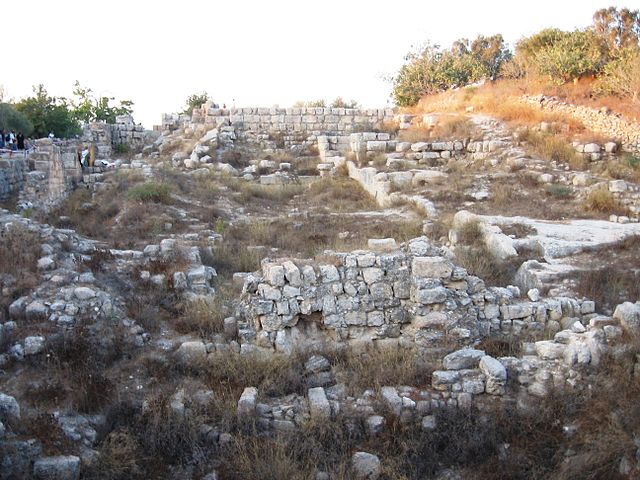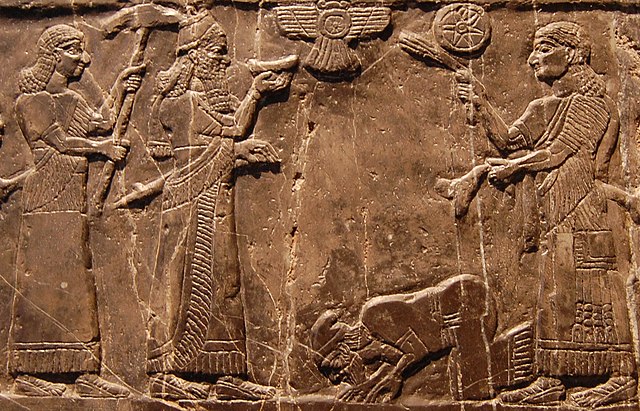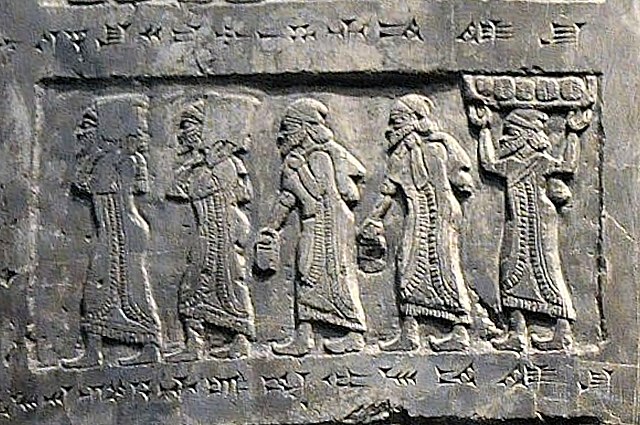Jehoash, whose name means "Yahweh has given," was the twelfth king of the ancient northern Kingdom of Israel (Samaria) and the son of Jehoahaz. He was the 12th king of Israel and reigned for 16 years. William F. Albright has dated his reign to 801–786 BC, while E. R. Thiele offers the dates 798–782 BC. When he ascended the throne, the Kingdom of Israel was suffering from the predations of the Arameans, whose king Hazael was conquering land controlled by Israel.
Stele of Adad-nirari III from Tell al-Rimah, now in the Iraq Museum, mentions the name of Jehoash the Samarian
Kingdom of Israel (Samaria)
The Kingdom of Israel, or the Kingdom of Samaria, was an Israelite kingdom in the Southern Levant during the Iron Age, whose beginnings can be dated back to the first half of the 10th century BCE. The kingdom controlled the areas of Samaria, Galilee and parts of Transjordan. The regions of Samaria and Galilee underwent a period with large number of settlements during the 10th century BCE, with the capital in Shechem, and then in Tirzah. The kingdom was ruled by the Omride dynasty in the 9th century BCE, whose political center was the city of Samaria.
Ruins of the Omride palace in Samaria, capital of the Kingdom of Israel
Jehu's delegation to Shalmaneser III, Black Obelisk, 841–840 BCE.
The tribute of Northern Kingdom King "Jehu of the people of the land of Omri" (Akkadian: 𒅀𒌑𒀀 𒈥 𒄷𒌝𒊑𒄿) as depicted on the Black Obelisk of Shalmaneser III, 841–840 BCE. This is "the only portrayal we have in ancient Near Eastern art of an Israelite or Judaean monarch".
Part of the gift-bearing Israelite delegation of King Jehu, Black Obelisk, 841–840 BCE.





